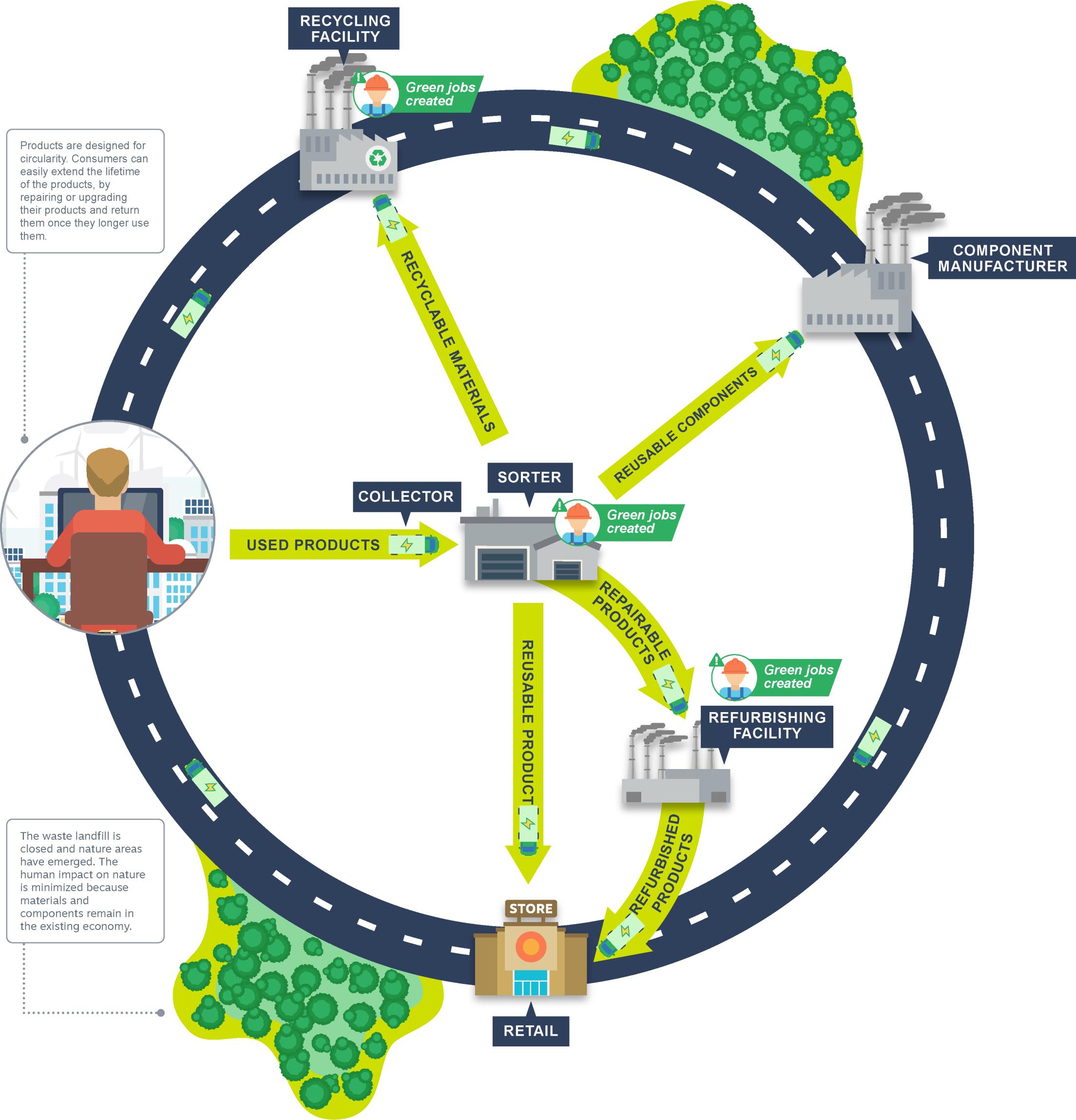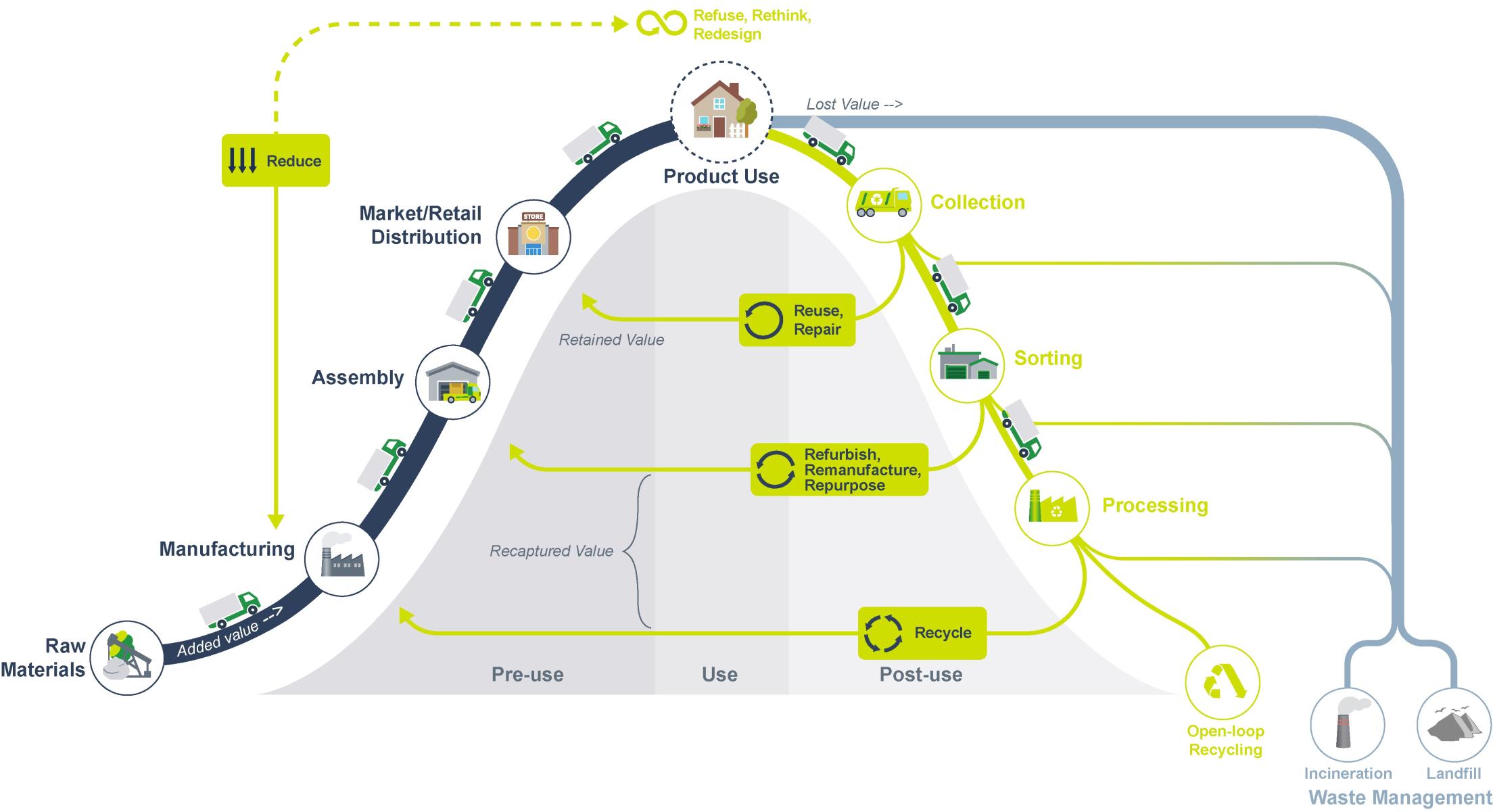FedEx and Pyxera Global test circular logistics model for electronic waste
Donate E-Waste with Ease through Terra’s Done With It
Many of us have an old laptop or tablet sitting in our junk drawer, but don’t always know where to dispose or donate such items. Each year, 50 million tons of e-waste are generated globally. Laptops and tablets often contain precious minerals that must be mined if not reused or recycled. Pyxera Global wants to make it easier for households and businesses to work together to reduce e-waste.
Residents of the continental U.S. wishing to donate their laptops and tablets may request a free FedEx shipping label with donation instructions by visiting the Done with It (Powered by Evercycle) website. The pilot program will accept items through January 31, 2024.
TERRA’s Done with It mail-in recycling program has been selected to provide collection services for the pilot and will direct the donated devices to a secure R2V3-certified facility located in middle Tennessee. To protect donor privacy, every device will have its internal memory wiped and/or physically destroyed in accordance with the R2v3 certification standards.
“The logistics industry plays a crucial role in our economy,” said Ben Fogg, Global Sustainability Manager for FedEx Logistics. “The pilot with Pyxera Global explores the role logistics companies can play in the circular economy and close the loop on electronic materials normally destined for landfill. With our goal to achieve carbon neutral global operations by 2040, we know that a stronger supply chain for critical mineral recycling is vital to support the batteries for electric vehicles and other low-emissions technologies.
If a donated device is repairable, it will be sent to Electronics Recycling Solutions (ERS), a Nashville-area social enterprise that is also R2v3-certified and dedicated to training adults with developmental disabilities in high-demand repair skills. If the device cannot be fixed, it will be broken down and its component parts with the lithium-ion batteries sold to American Battery Technology Company (ABTC). ABTC will recover the materials necessary for a domestic battery metals supply chain, ultimately used for powering electric vehicles.
Informed by the design and execution of the pilot, Pyxera Global recently released a framework intended to serve as a blueprint for the logistics industry to embrace their role enabling a circular economy that benefits people and planet. The initial report – Powering Sustainability through Circular Logistics – is built on the premise that transitioning to a circular economy is a crucial step towards achieving a sustainable future.
“Logistics and delivery companies are uniquely positioned to play a critical role in this transition through circular logistics, providing collection, sorting and redistribution,” says John Holm, Vice President of Strategic Initiatives at Pyxera Global. “This report highlights how logistics companies can shape a sustainable re-use economy for consumer products and provide services for manufacturing and retail companies on their journey toward more circular practices.”
For more information about the types of products that can be accepted and how to best pack your shipment, go to the Done with It website to learn more.
About Pyxera Global
For over 30 years, Pyxera Global has been dedicated to enhancing resiliency worldwide by harnessing the collective resources of corporations, government, and communities to drive positive social change for people and the planet. Pyxera Global offers strategic advisory and implementation services for corporations and governments with a shared commitment to bolstering local economies while respecting planetary boundaries.
Infographics courtesy of Metabolic (https://www.metabolic.nl/).




